Britain’s New Foreign Secretary Hates Trump and Loves America
David Lammy is determined to stay on message—but he has always had strong opinions.
Listen to this article
“We don’t have a lot of time, do we?” David Lammy says as I sit down next to him. “Sorry about that!” We’re meeting in a bistro near Parliament, and it is nearly empty. That’s no surprise; Britain’s general election is a couple of weeks away, and everyone has decamped to their part of the country to campaign.
This is why Lammy’s team could only offer me half an hour with the then-shadow foreign secretary. He was already a busy man, and now he’s about to get busier, following his official appointment as foreign secretary last Friday. The day before that, Labour pulled off one of the largest landslides in U.K. political history.
“We don’t have a lot of time, do we?” David Lammy says as I sit down next to him. “Sorry about that!” We’re meeting in a bistro near Parliament, and it is nearly empty. That’s no surprise; Britain’s general election is a couple of weeks away, and everyone has decamped to their part of the country to campaign.
This is why Lammy’s team could only offer me half an hour with the then-shadow foreign secretary. He was already a busy man, and now he’s about to get busier, following his official appointment as foreign secretary last Friday. The day before that, Labour pulled off one of the largest landslides in U.K. political history.
Under strict instructions from party leader Keir Starmer, Labour’s shadow frontbench—the spokespeople who, after the election, are poised to become secretaries of state—has had to remain relentlessly on message. Every interview revolves around delivering a few clear messages and little else. Every policy announcement has been run past a thousand focus groups. Every decision is calculated, and every intervention is as precise as it needs to be.
A sign that the Starmer doctrine really has worked is that, over the course of our half-hour together, Lammy, for once in his life, fails to say anything truly compelling. There’s a reason he apologized to me; the foreign secretary is a very interesting man, and for the last six weeks he has been doing his best to hide it.
Before I first interviewed him just over a year ago, I tried to read every interview he’d given until that point to get a sense of who he was. It nearly made me lose my mind. There are approximately 1 million interviews of Lammy.
Over his 24 years in Parliament, he has spoken to every publication about everything. He has charmed and infuriated interviewers, argued with them, laughed with them, changed their minds, and shouted at them.
But he was always interesting, often taking turns you wouldn’t have expected. A straight talker with strongly held opinions on countless issues, he was the person you’d go to if you had inches to fill in your paper and wanted some solid quotes.
“It’s a bit like when you are writing a book,” he told the Guardian back in 2017. “You can’t self-edit in the first draft. You have to say what you feel and what you see. … I am not self-editing.”
This is why Starmer’s decision to appoint him in a senior position felt eyebrow-raising. Could a temperate control freak really work with a man many had previously seen as a bit of a loose cannon? As it turns out, he could.
“I’ve always been my authentic self, and I continue to be that in politics,” Lammy tells me. “In the end, if we get over the line in the election, I carry the responsibility of a big office of state. The short leash is something that I’ve created—I’m part of the decision-making machine of the Labour Party that has created that short leash. I’m very happy to do that.”
Cherie Blair, wife of Prime Minister Tony Blair, watches as Lammy holds a baby in London on June 19, 2000, when he was campaigning as a Labour candidate in Tottenham. Fiona Hanson/PA Images via Getty Images
Perhaps it shouldn’t be a surprise; as Lammy puts it himself, he is now in the third act of his political career. The first act began in 2000, when he became the member of Parliament for Tottenham, a long-term Labour stronghold in northern London. At the time, opponents had sought to paint him as a “slick, media-friendly candidate who will represent the interests of the Labour party leadership rather than the people of Tottenham.”
In a way, they weren’t wrong. Here was a confident young barrister and the first Black Briton to attend Harvard Law School. Elected at only 27, he got his first junior government job in 2002, under Prime Minister Tony Blair. That year, the Guardian called him “one of Westminster’s more glamorous MPs.”
Still, he was a more complex character than what was being portrayed.
“I came from a broken home. I was raised by a single mom—I was not some young whippersnapper, like a young Boris Johnson,” he told me last year. “A lot of my peers had spent time in prison, were struggling with mental health, had parents like mine who’d had periods of unemployment.”
Born in northern London to Guyanese parents, Lammy and his siblings were raised by their mother after their father left and moved to the United States when Lammy was a preteen. He went to a state school and then, at 10, was given a scholarship to attend the King’s School in Peterborough.
After his childhood years in a predominantly working class and very diverse inner London neighborhood, Lammy got to experience life in more privileged—and homogenous—circles. Eventually, he spent three years at Harvard, where he met a young Barack Obama at an event for Black alumni in 2005.
“I saw him every time I went back to the States,” he told the Times in 2008. “We stayed in touch. We had a lot to talk about, a lot in common. He was a senator in the biggest democracy in the world, I was a minister in one of the biggest democracies. Our cultural backgrounds were similar. We built up a professional friendship.”
Lammy and then-Deputy Prime Minister Nick Clegg meet local residents and business people in Tottenham in London on Aug. 8, 2011, following riots in the area after the killing of a man by police during an attempted arrest. Stefan Rousseau/Getty Images
Like his friend Obama, Lammy was a star who kept rising and rising, until his party lost the 2010 election.
Offered a job by the leader of the opposition a few months later, Lammy refused and chose instead to return to the backbenches. This was when he entered his second act. Over a decade, Lammy became known as a passionate and outspoken backbencher. He made speeches on the London riots and the plight of young, underprivileged Black kids; after the Brexit vote, he became one of Labour’s most prominent pro-EU figures.
He wasn’t afraid to go against the government or the Labour leadership or whoever was speaking to him. “I’m a good campaigner,” he told GQ in 2018. “I am not good at licking arse; in politics you have to lick a lot of backsides.”
In that same interview, he was asked to describe then-U.S. President Donald Trump in one word. “I don’t think I can say the word,” he said. That same year, the topic cropped up in a different newspaper. “I can’t represent the kind of place I represent and not have something to say in the age of Trump,” he told the Standard.
This brings us back to our coffee in Westminster, in 2024. I read those quotes out to him and ask how he feels now—in his third act, in a more senior position than ever in the Labour Party.
“Well, look,” he says, “I’m a progressive politician, Keir Starmer’s a progressive politician, but we’re also democrats, and we recognize—and this has been the case really since 2008—that within our own countries, there is a healthy democratic debate. There are sharp differences of opinion.”
There it is again, the short leash. It’s like talking to a pamphlet. Luckily, Lammy gets more animated when talking about the United States more broadly.
“I’m not sure there will be a foreign secretary that’s spent quite as much time in the U.S. as I have over the course of my life,” he tells me. “I feel my history is such that I’m umbilically tied to the United States, with family who were born and raised in the United States, cousins, aunts, uncles, a father buried in the United States, having studied in the United States, having many friends there. … And frankly, when you’ve got a former president that is a friend, clearly you’ve got strong links to the United States.”
What is it about the country that attracts him so much? “I’ve always loved America’s dynamism, its scale, its can-do [attitude], and its deep democratic and intellectual traditions,” he continues. “It’s been somewhere I’ve gone to for inspiration.”
He even considered staying on for a while. “After Harvard, I worked in Silicon Valley. At that point, you don’t know if this is a chapter or a book. But the truth is, California’s a long way from Europe. I was homesick, so I came home.”
Labour Party leader Keir Starmer arrives at the Gare du Nord in Paris with Shadow Chancellor Rachel Reeves and Lammy ahead of a meeting with French President Emmanuel Macron in Paris on Sept. 18, 2023.Kiran Ridley/Getty Images
One of the reasons why Starmer gave him the shadow foreign secretary job is that he is remarkably well-connected, in the familiar manner of a cosmopolitan Harvard graduate. He has friends across the globe and enjoys traveling. Since getting the job, he has been to more than 40 countries.
At the same time, however, he is a politician who is and will always remain fundamentally tethered to England. In his wilderness years, he wrote and spoke endlessly about his country, its cleavages, and its people. There is his Guyanese heritage, of course, but you get the sense that it only enriches his relationship with Britain and London further.
There’s a lot on his plate in the new job. Among his priorities, Lammy has identified resetting the currently fractious relationship with the European Union as well as securing Ukraine’s defense. He complains that “Boris struck a paper-thin deal” with the EU when the U.K. left the bloc. “I hope we can get back to structural engagement with the European Union, which will be very important. When I talk about a reset, I mean a reset—there will be a total shift.”
Another area of focus will be climate change. “We’ve seen a rowing back on our climate commitments internationally from Rishi Sunak,” he says. “I’m looking forward to working with the Lula government in Brazil as we head to COP and the U.K. being a nation leader on climate once more.”
More broadly, his “No. 1 thing is to reconnect Britain across the global family, and there’s a lot to do. … We have appeared rather navel-gazing and isolationary under the Conservatives.”
Lammy delivers a speech to delegates at a Labour conference in Liverpool, England, on Oct. 9, 2023. Christopher Furlong/Getty Images
As for the United States, he mentions the special relationship—naturally—and adds that “the world saw just recently, over the Red Sea and over the skies of Israel and Jordan, the importance of the U.S. and U.K. troops working together to thwart the prospect of escalation in the Middle East. We are in a really important role in terms of defense of the rules-based order and democracy, at this time when democracy is in retreat, I’m afraid, around much of the globe.”
Instead of addressing the Trump-shaped elephant in the room, he says that, as “the country’s first diplomat,” he would be “more concerned about [Vladimir] Putin’s new strategic partnership with North Korea, about Iran and Iranian drones being used in Ukraine, and about the worrying prospect of even deeper partnership between Russia and China and dual-use technology finding its way onto the battlefield.”
His view of the world is one of “progressive realism—meeting the world as it is, not as we would wish it to be.” It is, he argues, part of a well-trodden Labour tradition, “learning from Ernest Bevin after the Second World War and his hard-headed commitment to the nuclear deterrent and his birthing of NATO but also [Blair’s first foreign secretary] Robin Cook and his progressive centering of climate for the first time.”
After all, Lammy is many things, but, at his core, he is a Labour man through and through. He may not be as outspoken as he once was, but he doesn’t appear frustrated by it. He had his time to speak his mind; there are now bigger things at play.
“It’s my sincere hope that people will put their faith in us once again, and Keir Starmer, with my support, will be able to write the next chapter in Labour history, in this great country’s history.”
I look at my Dictaphone and realize we have been speaking for exactly 30 minutes. I turn it off, and, within seconds, he and his advisor have left. Lammy has waited a long time for this; you can’t blame him for playing it safe.
Marie Le Conte is a freelance political journalist based in London. Her book, Haven’t You Heard? Gossip, Politics and Power, is out now. X: @youngvulgarian
More from Foreign Policy

What Trump’s Win Means for U.S. Foreign Policy
He is poised to bring back hallmarks of his first term, from a China trade war to hostility toward multilateralism.

Why She Lost
Despite a platform focused on winning back the working class, Kamala Harris and her party had lost too many of them already.

Trump’s Foreign-Policy Influencers
Meet the 11 men whose worldviews are shaping the 2024 Republican ticket.

The 10 Foreign-Policy Implications of the 2024 U.S. Election
What to think about Trump 2.0.
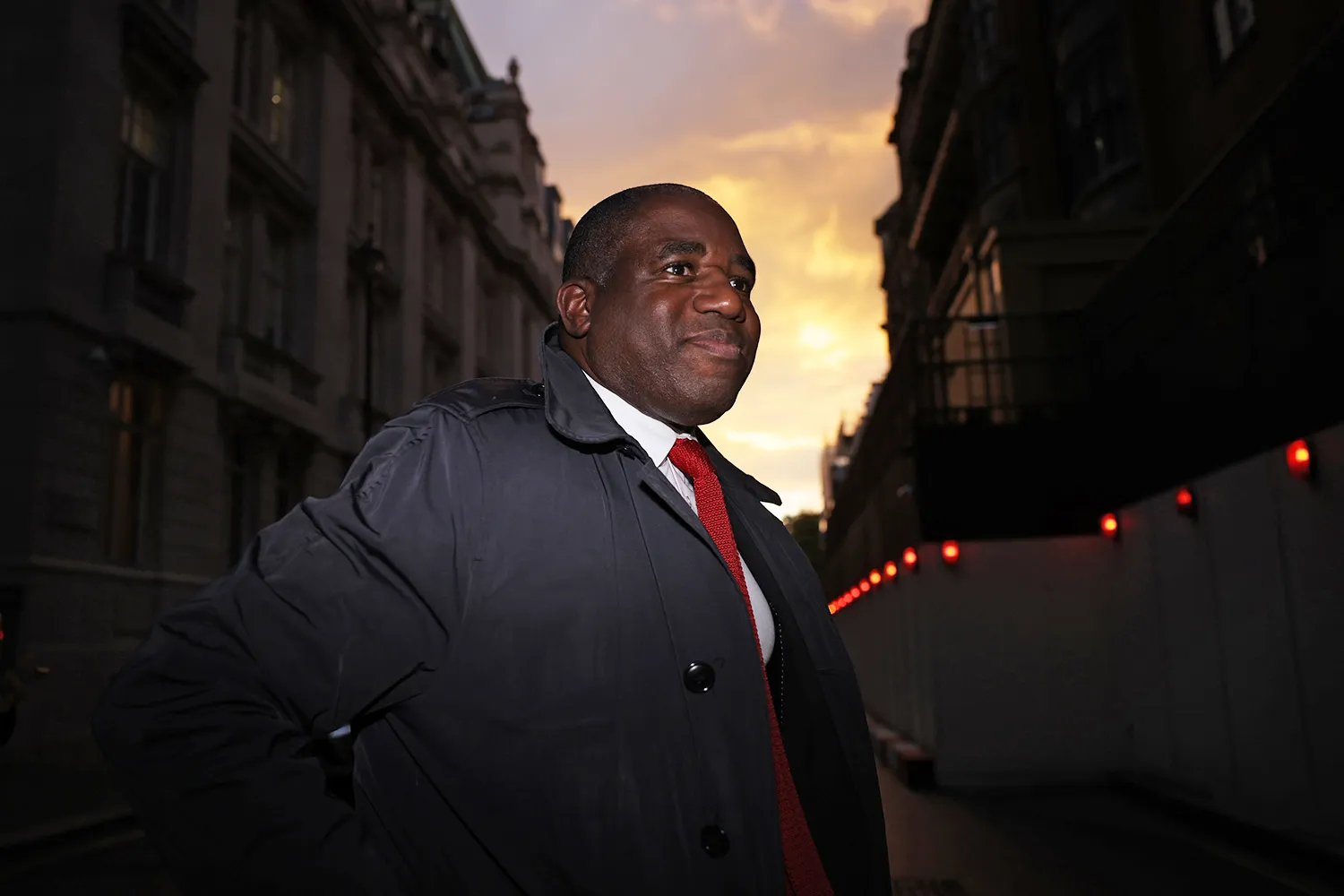
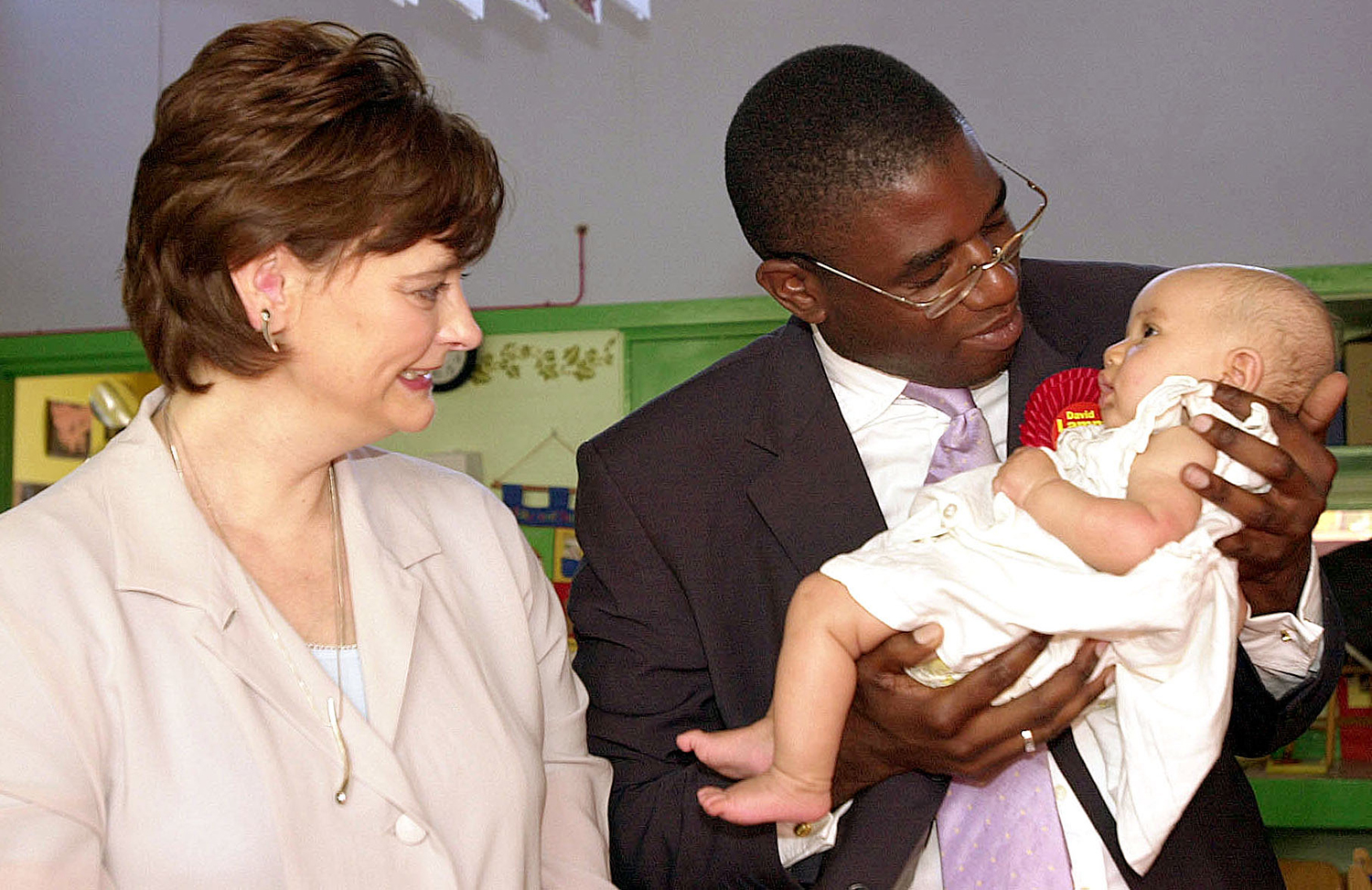

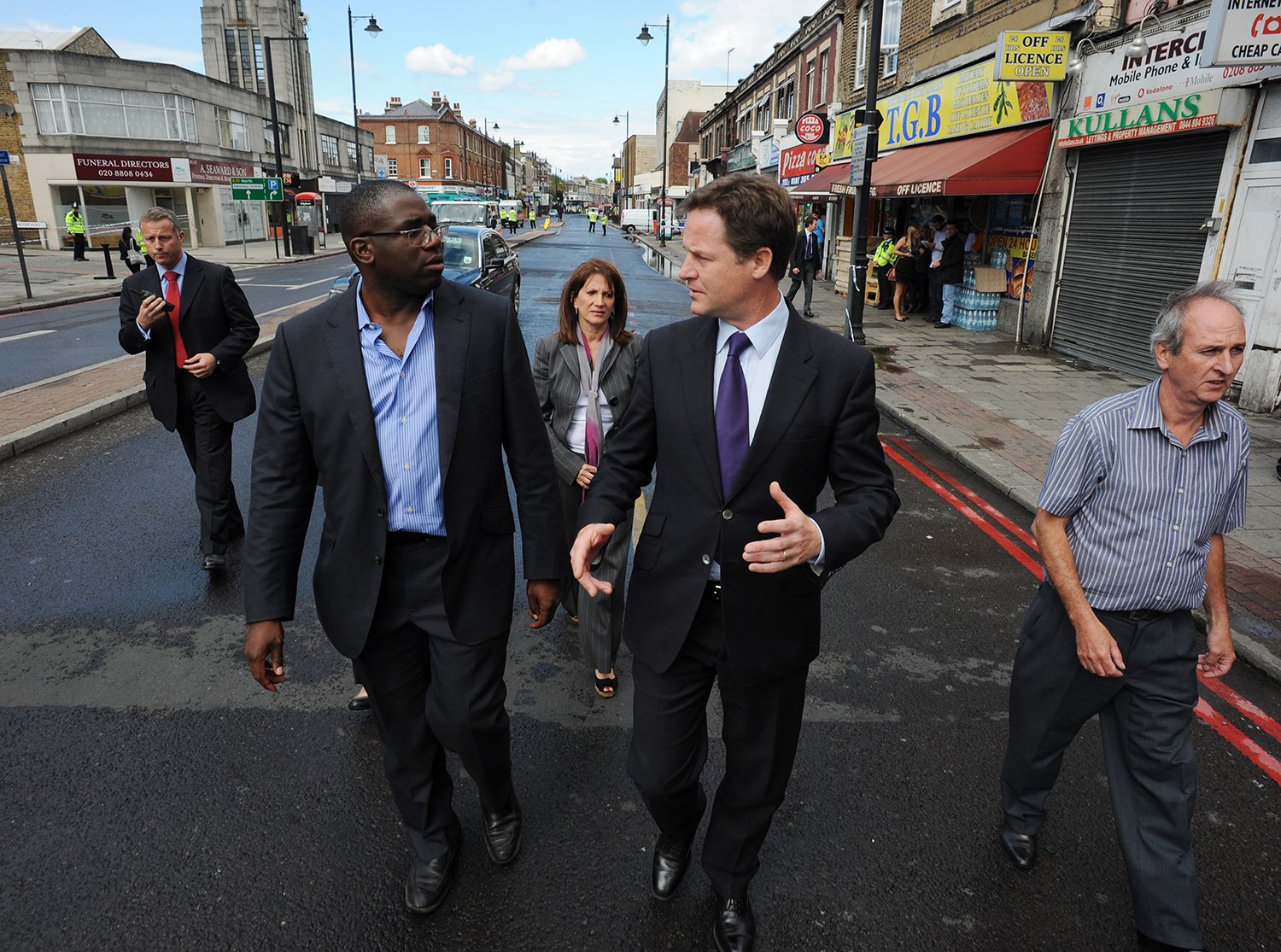
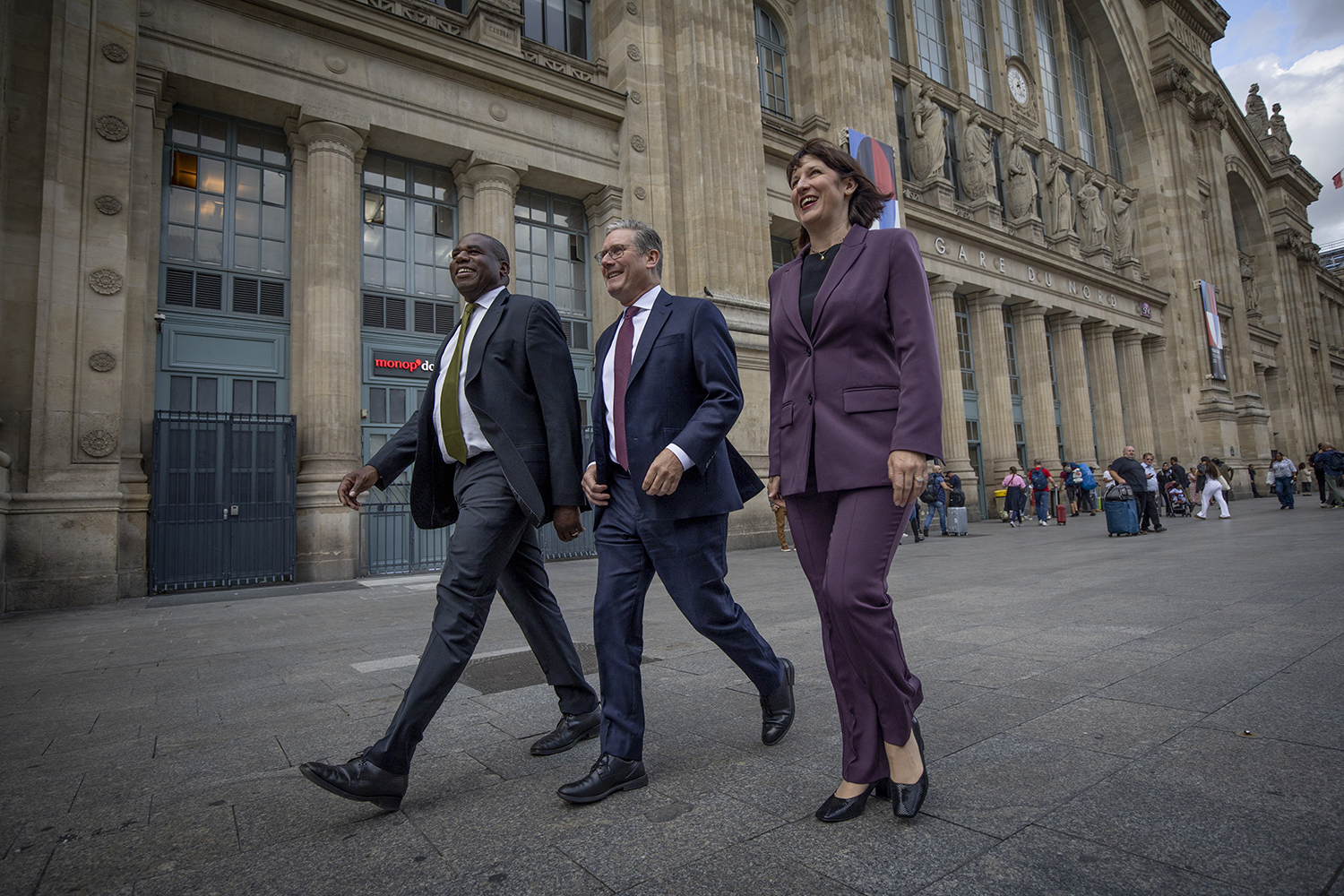
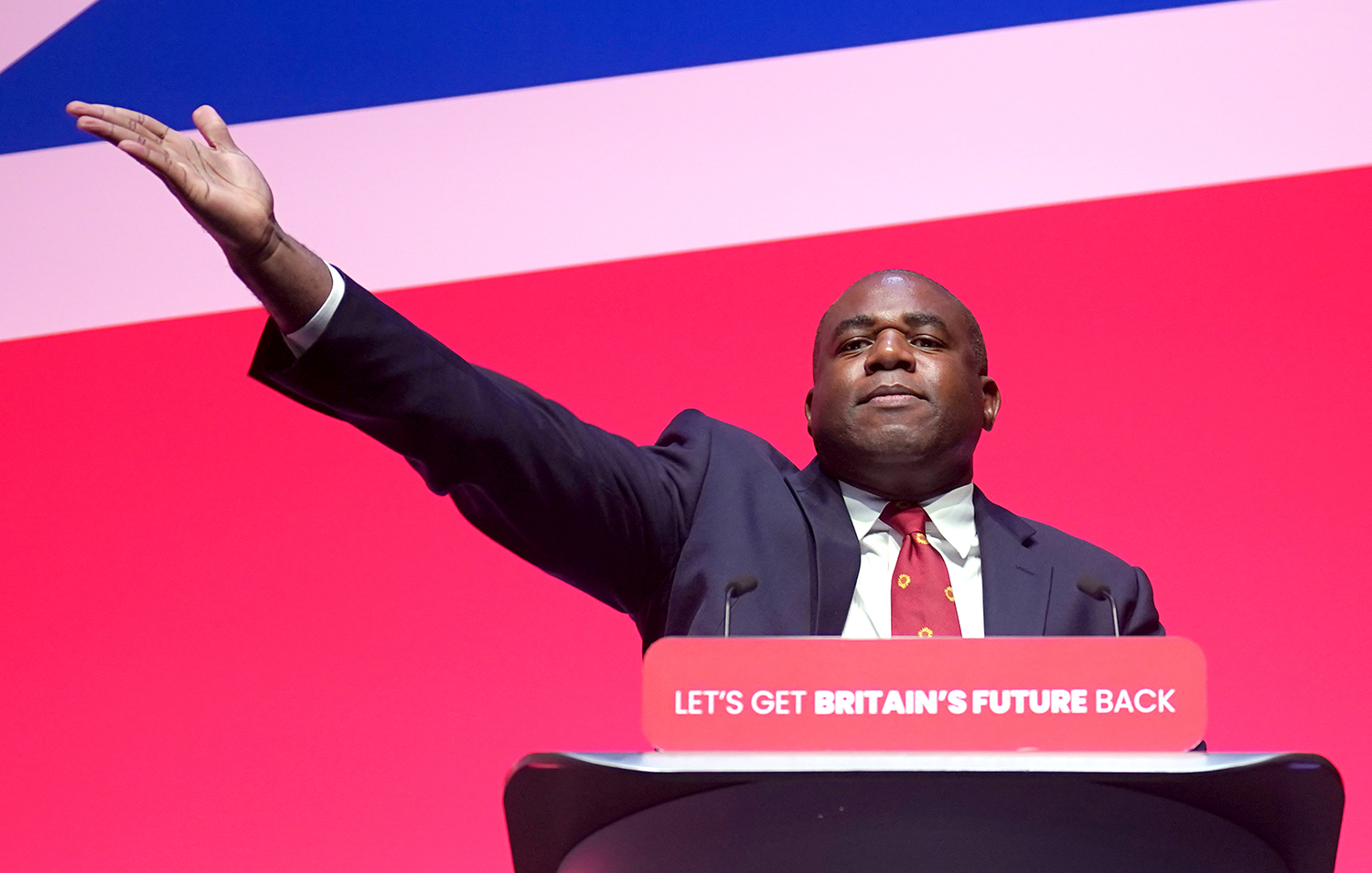
Join the Conversation
Commenting on this and other recent articles is just one benefit of a Foreign Policy subscription.
Already a subscriber? .
Subscribe Subscribe
View Comments
Join the Conversation
Join the conversation on this and other recent Foreign Policy articles when you subscribe now.
Subscribe Subscribe
Not your account?
View Comments
Join the Conversation
Please follow our comment guidelines, stay on topic, and be civil, courteous, and respectful of others’ beliefs.